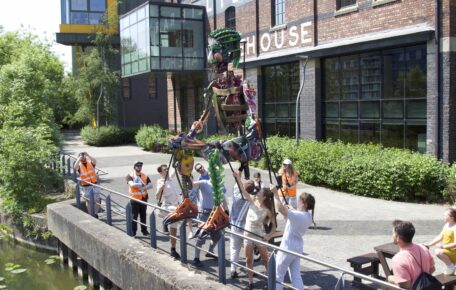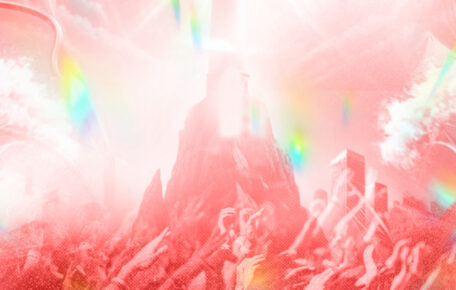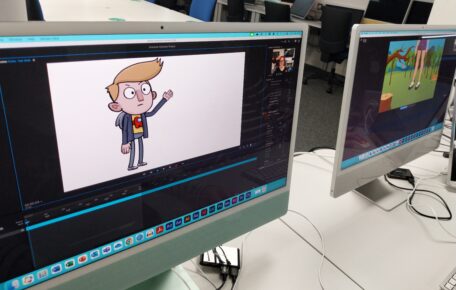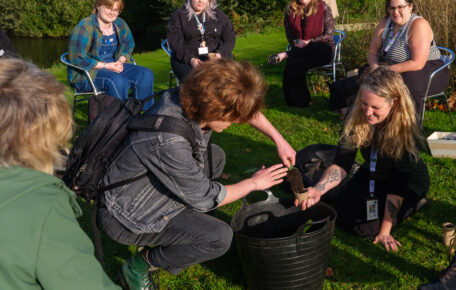
Artist Commission Opportunity Exploring Freedom Past and Present
Artist required to create bold, public artwork as part of VE Day 80 commemorations.
Local reviewer Jack Davey came to watch Fatherhood at LPAC on Thursday. Below, you can read his review of the wonderful show. For more reviews from Jack, follow his Twitter and Instagram, @jackdavxy.
Fatherhood, presented by transcultural physical theatre company Altered Skin, was a phenomenally evocative show which I thoroughly enjoyed, combining moments of humour with the brutal realities of ethnic prejudice, and how it is deemed ‘appropriate’ to respond to this. Devised and performed by the enthralling Shane Shambhu, there aren’t enough words to describe how poignant yet phenomenally important these stories are to tell, encapsulating 3 contrasting stories of migrant fathers, but also a joining between them, the internal voices that they share, the lived experience, and ultimately what it means to be human.
During the opening scenes of the performance, we are greeted by the first of the fathers. With toys thrown all across the stage floor as we walked into the auditorium, there is a sense of empathy as the chaos of a 21 month old has already begun to take shape. He addresses the audience instantaneously, a very charismatic individual, though as the play begins to develop we see his moments of weakness, as we do among the other characters, particularly through discipline as a child. It’s rare to see open portrayals of men showing weakness in a modern day, so for Shane to express this helped to give a voice to the issue. Additionally, what I found interesting was this father’s expressiveness and curiosity through movement, as he had a great fluidity through his body, which wasn’t inherently masculine, but this physicality seamlessly flowed between all the fathers in simplistic yet effective costume changes, as the human experience becomes relatable and parallel across the three figures.
I found the second father highlighted more the complexities in everyday moments, and also how the absence of spoken language can impact one’s control of having a ‘voice’ to speak out. We experience his story partially through sign language, and partially through the voice of his daughter. Alongside the sign language used (and across the whole production), captions were projected along the back, integrated into the piece. The way the captions would be presented on the screen was very innovative, from overlapping soundscapes to thought bubbles of inner voice, to explore grief on a deeper level. The most impactful scene, in my opinion was a moment where this father’s daughter narrates a harrowing story of abuse at school. Visually, this was re-enacted through lamb and wolf plush toys, though the theme of innocence was shown through these props, and the potential physical and emotional effects these hateful acts have on children, audiences can only applaud Altered Skin for bringing light to this. A mantra used in the show was the idea to stay “silent” because it might be easier, but bringing these stories to a theatrical world is needed to inspire change.
The final father we meet faces a sombre tone in his story, as we not only see the fears of becoming estranged as a parent, but also the loss of a father, and its impact. In particular these scenes highlighted the social norms of male emotion, showing a much more stern front as his role as a father and son became flipped on its head, most of his stressed language is gesticulated through sharper physicality. In a similar essence to the second father, there was an incident regarding his child getting into a fight at school, because they were visibly different. Seeing the parallels and cross-cutting between the scenes, the show allows audiences to see how little change has happened in almost half a century, as well as a visual collage of the setbacks migrants have faced, such as the 1905 Aliens Act. A special notice to Mark Morreau’s projection design and James Mackenzie’s lighting design for the stunningly effective visuals that carried the piece through with very subtle connections and shared moments.
One part of the evening I particularly enjoyed was the post show discussion, a really enlightening insight into Shane’s creative process, and how his own experience as a father helped to shape the work. As he mentioned during the talk, he is the son of a migrant himself, so to see this personal connection embedded within the show added a more truthful tone to it that could become relatable for many in the audience. And the many nods to Asian culture, such as the Malayalam language and Bharatanatyam dance brought forward from the rehearsal process was so important to see away from the umbrella of stereotypes they are typically placed under. To reiterate, Shane Shambhu and Altered Skin’s creative team deserve a huge thank you for presenting this show across the UK as a representation of breaking Asian generalisations, showing the diversities within diversity, shining a light on weakness, and the topics we tend to shy away from.

Join us for a spectacular day of light and life, where creative expression meets youthful vibrance!

This workshop is brought to you by the BA (Hons) Animation with VFX course — where creativity meets cutting-edge tech.

A day long event focused on social prescribing, with a spotlight on young people’s voices and their mental health and wellbeing.
Stay in touch by signing up to our mailing list
Enter your details below to subscribe to our newsletter and receive exclusive offers, event announcements, projects and news